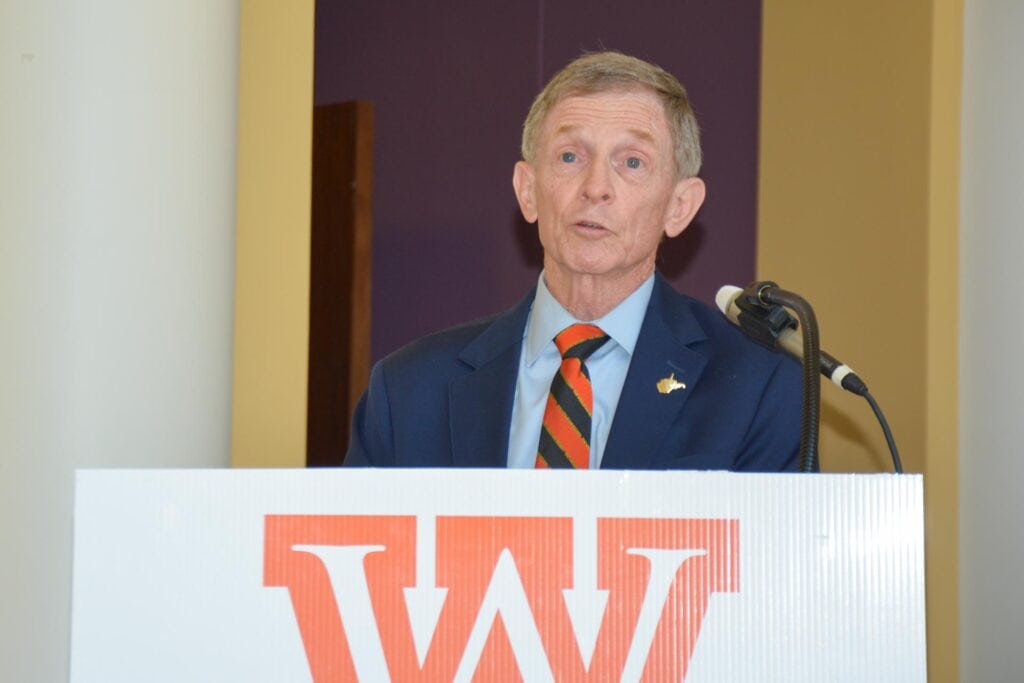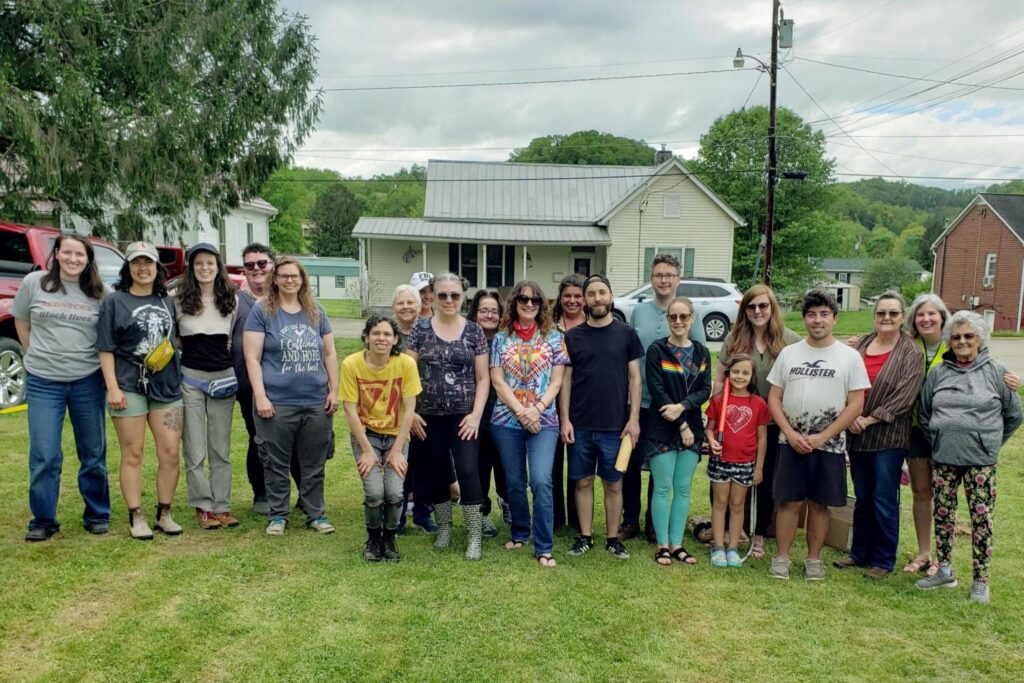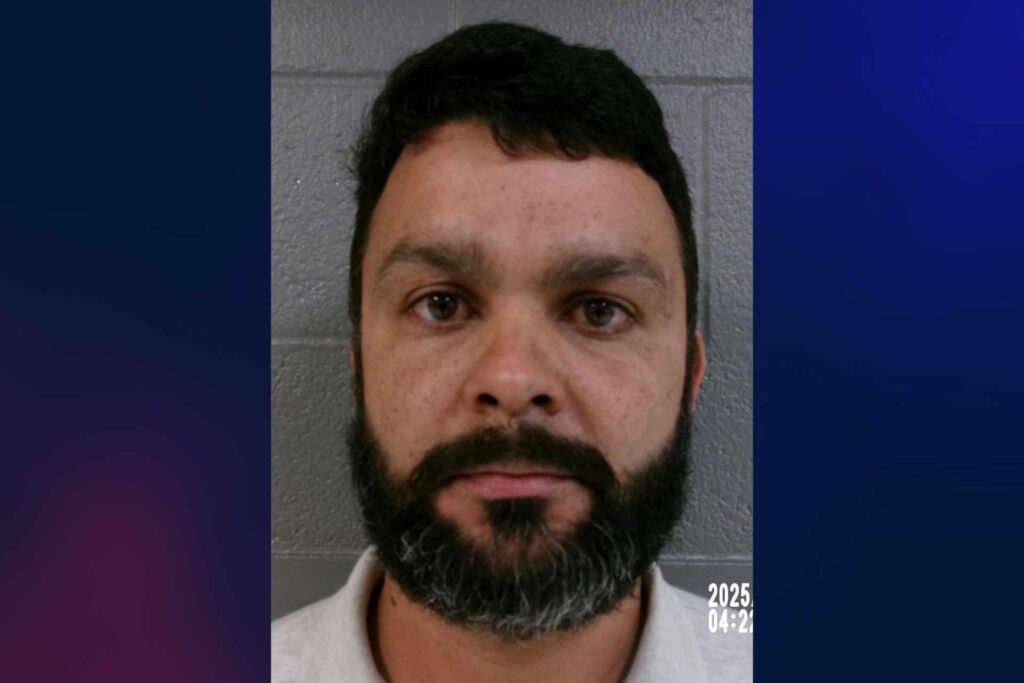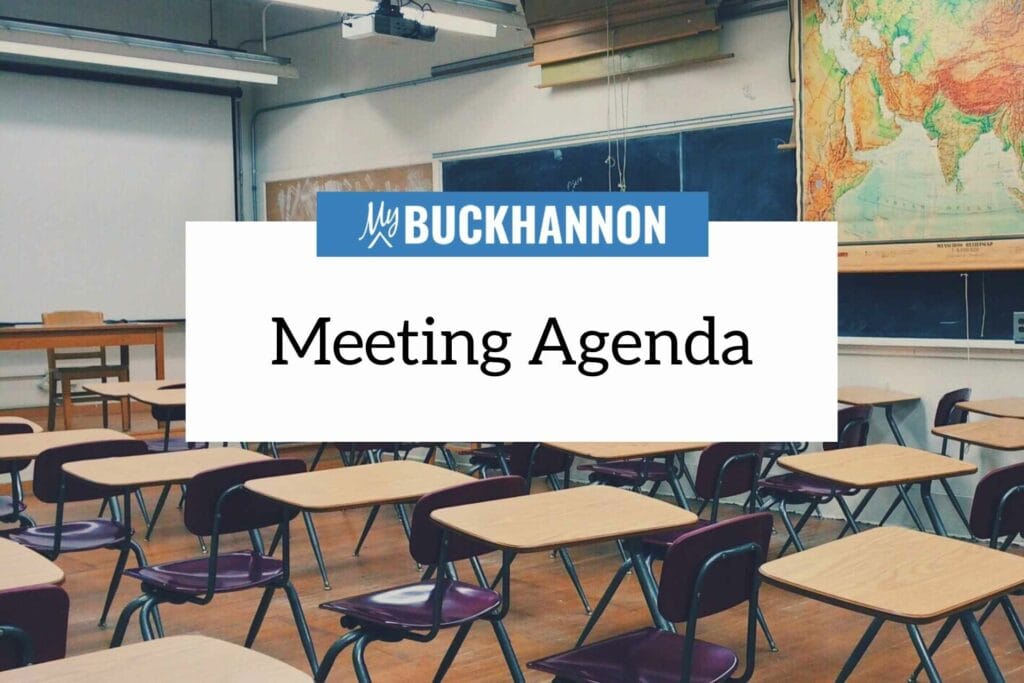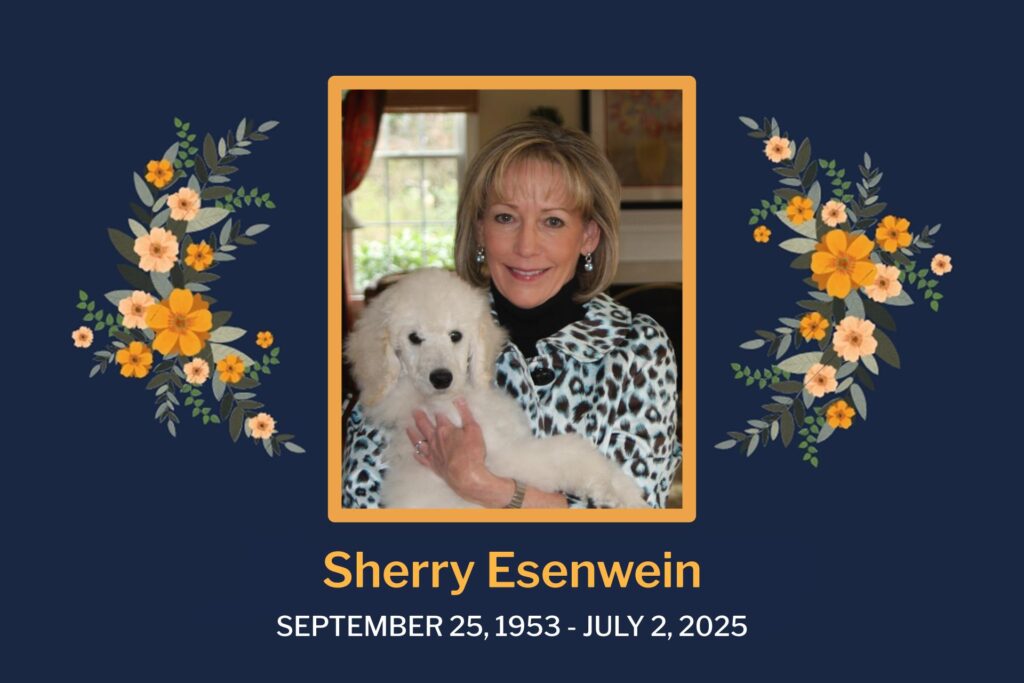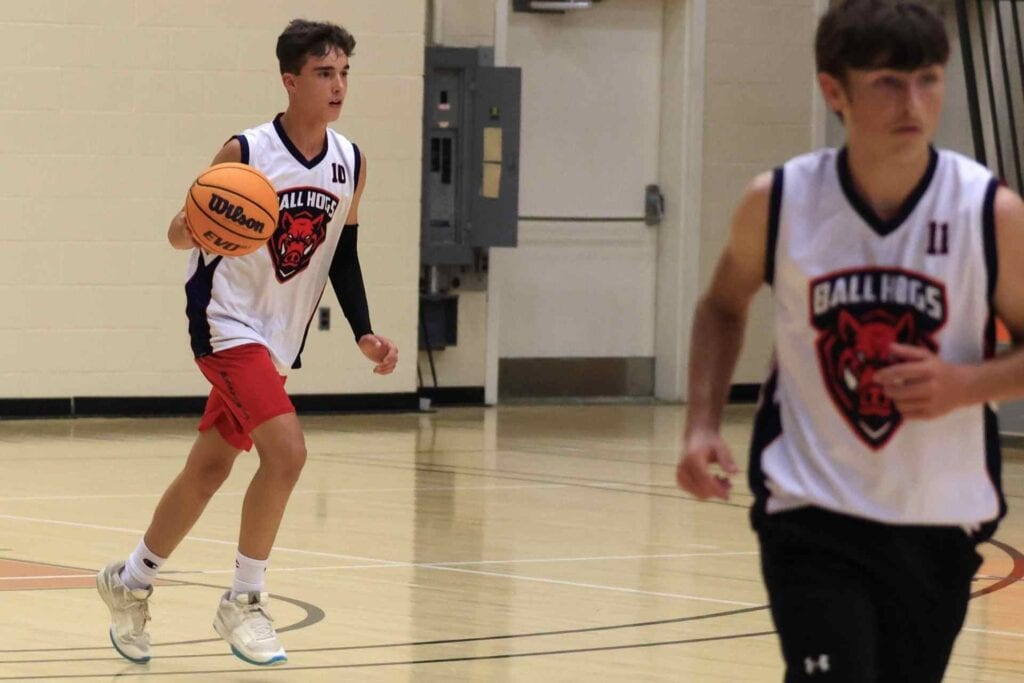BUCKHANNON – Abigail Bowe hopes to improve the effectiveness of addiction treatments by researching how neuroplasticity in the brain following drug abuse might aid in recovery. Logan Nelson plans to investigate how the planet’s warming temperatures are affecting plants, soils and mycorrhizal fungi.
And for John Rose, the sky isn’t the limit. He will be conducting research related to the current NASA Mars Mission, specifically examining possible power sources that don’t depend on the sun.
Now, thanks to a new undergraduate summer research fellowship announced Monday at West Virginia Wesleyan College, the three rising sophomores will be able to focus on academic areas they’re passionate about – ones that have the potential to improve the well-being of individuals and communities as a whole.
West Virginia Wesleyan College President Dr. Joel Thierstein praised the establishment of the McCuskey Family Fellowship program, made possible by a $1.5 million-dollar gift from WVWC Class of 1969 alumni John F. McCuskey – the largest one-time contribution Wesleyan has received from a single living donor in its 131-year history, according to a Wesleyan press release.
McCuskey himself joined Thierstein, college officials and faculty members Monday at the Virginia Thomas Law Center for the Performing Arts to celebrate the kickoff of the endowed scholarship, which he dubbed “a unique visionary program that will put West Virginia Wesleyan, its students and its faculty at the forefront of American higher education.”
“The fellowships we are creating today are not rewards for previous academic achievements, but rather, the presentation of an opportunity to passionate students, such as Abigail, Logan and John, to reach for the stars on a fast track, while at the same time, gaining a well-rounded, ethically-based college education,” McCuskey said.
Bowe, Nelson and Rose make up the first class of students awarded the scholarship, recipients of which will be chosen on an annual basis. Students selected initially will be those interested in the natural sciences – physics, biology and chemistry – but the fellowship will likely eventually encompass students studying the humanities.
Thierstein said he was profoundly grateful for McCuskey’s gift and vision.

“The significance of this fellowship cannot be overstated,” Thierstein said. “Receiving this fellowship is a transformative moment in the life of the recipient, and the program accelerates the student’s ability to understand higher-level thinking.”
The president noted the gift will enable students to conduct primary research “in the field of their choice, on the subject of their choice” with one of Wesleyan’s top scholarly experts in their respective academic fields.
McCuskey and the college’s shared vision for the fellowship is to provide students with diverse backgrounds the opportunity to conduct undergraduate-level research aimed at prepping them for the workforce or to advance in the academic world. A Wesleyan press release says criteria include but aren’t limited to students who grew up in the Appalachian region; students of minority status; students with a physical or intellectual disability; and/or students who attended a high school categorized as substandard by state boards of education.
As small, liberal arts schools struggle to maintain financial stability and relevance as the world transitions to a post-COVID era, McCuskey said donating to his alma mater “here and now” seemed critical.
“Higher education has suffered greatly due to the pandemic,” McCuskey said. “Only the strong are going to survive, and this program, will, I believe, make Wesleyan at the forefront of being able to survive and prosper in the years to come.”
He wants to live to see the impact of his gift – something that’s not possible when donations are received via estates.
“I wanted to live to see this with my own eyes, to be a part of it, so why not do it now?” McCuskey said. “This was the time to do it, and now I get to meet these students, I get to follow them, too, and I get to [find out] what happens to them when they graduate.”
Two students awarded the inaugural fellowship, Bowe and Nelson, were on hand for the announcement. Bowe, who will work with assistant professor of biochemistry and neurochemistry Dr. Bruce Anthony, thanked McCuskey and his family for the “amazing opportunity to get hands-on research through a long-term summer research program.”
“Through collaboration with my faculty advisor, Dr. Bruce Anthony, I will be investigating neuroplasticity in the brain after drug abuse in an effort to improve addiction recovery therapies,” she explained. “This is a very special area of study to me, as I personally know people who have been affected by drug abuse. I feel passionately about this project, and I am so excited to be working on something that will have a long-lasting effect in the world.”

McCuskey said another goal of the fellowship is to assist Wesleyan in retaining and recruiting not only students across the U.S. and Appalachian region, but also “brilliant and passionate faculty members to continue to challenge students of promise.”
McCuskey, whose grandfather served as the president of Wesleyan during the Great Depression era, also views the gift as a “clarion call” for liberal arts graduates like himself to give back to their alma maters.
“Such support of Wesleyan and institutions like it will create the type of leaders sorely needed for our country and our world – those who are educated with the tools of critical thinking, moral values and the ability to engage in civic discourse,” he said.
The program begins in two weeks, and Wesleyan’s chief development and marketing officer, Talley Sergent, said the fellowship will be life-changing for its recipients.
“John McCuskey’s commitment to supporting West Virginia Wesleyan and the State of West Virginia is on full display with this monumental gift to his alma mater,” she said. “The true impact of the McCuskey Family Fellowship will come to life in the years ahead as we implement Mr. McCuskey’s vision.”
McCuskey concluded his speech by asking anyone with the financial means who has benefitted from a liberal arts education to take visible, concrete action to preserve the institutions rooted in that academic tradition.
Quoting the epistles of John from the Bible, he said, “Let us love not in word or speech but in truth and action.”
Anyone interested in supporting the McCuskey Fellowship may visit wvwc.edu/give.


